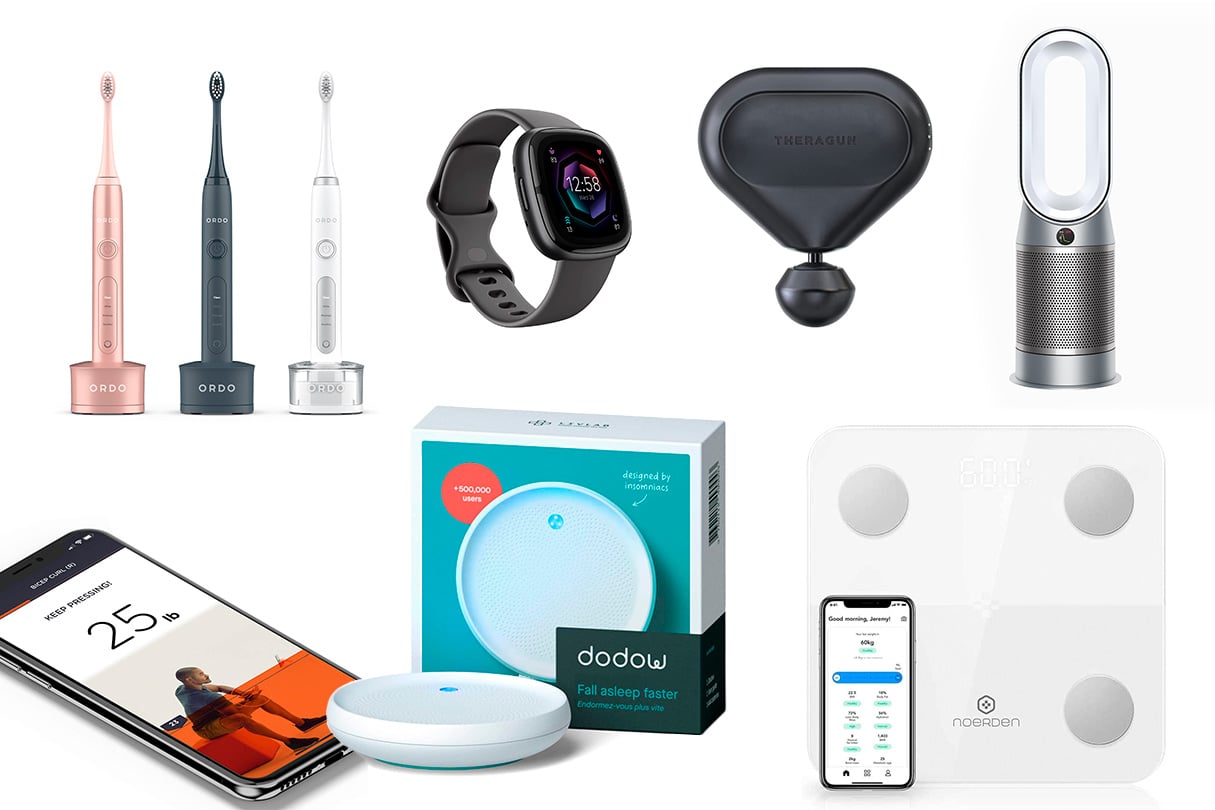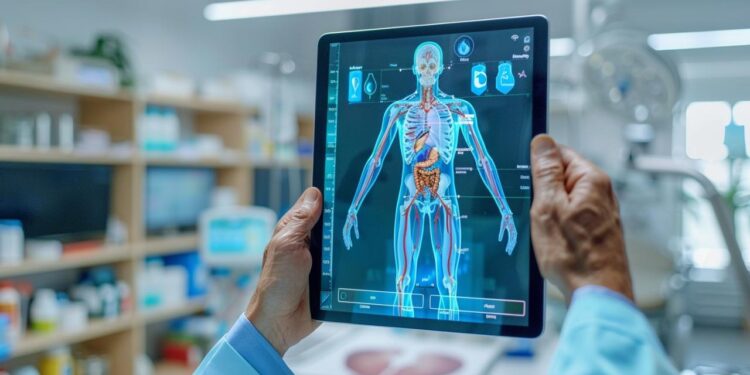Health Gadgets Revolution 2025 brings a wave of advancements in healthcare through cutting-edge technologies, reshaping how we monitor and manage our well-being.
From wearable devices to smart health gadgets, the future holds a promising landscape of improved health outcomes and personalized care.
The term ‘Health Gadgets Revolution 2025’ refers to the anticipated wave of technological advancements in the healthcare industry driven by the integration of innovative health gadgets by the year 2025. These gadgets are designed to monitor, track, and improve various aspects of health and wellness, leading to a significant transformation in how healthcare is delivered and managed.
Significance
Health gadgets play a crucial role in the upcoming revolution by empowering individuals to take control of their health through real-time monitoring and personalized insights. These gadgets encompass a wide range of devices such as fitness trackers, smartwatches, wearable sensors, and mobile health apps that enable users to track their physical activity, sleep patterns, heart rate, blood pressure, and other vital health metrics. The data collected by these gadgets can provide valuable insights into an individual’s health status, lifestyle habits, and potential risk factors, allowing for early detection of health issues and proactive management of chronic conditions.
- Health gadgets promote preventive care by fostering a proactive approach to health management, encouraging users to make healthier lifestyle choices based on personalized data and feedback.
- These devices facilitate remote monitoring and telehealth services, enabling healthcare providers to deliver more efficient and accessible care to patients, especially those in rural or underserved areas.
- Health gadgets have the potential to reduce healthcare costs by preventing unnecessary hospitalizations, emergency room visits, and complications associated with untreated or poorly managed conditions.
Expected Transformation
By 2025, the widespread adoption of health gadgets is expected to revolutionize healthcare delivery and outcomes in the following ways:
- Improved Patient Engagement: Health gadgets will empower individuals to actively participate in their healthcare journey, leading to increased patient engagement and adherence to treatment plans.
- Enhanced Data-driven Decision Making: Healthcare providers will have access to real-time health data collected by gadgets, allowing for more informed and personalized treatment decisions based on individual health profiles.
- Shift Towards Preventive Care: The emphasis on preventive care enabled by health gadgets will shift the focus from reactive treatment to proactive health management, reducing the burden of chronic diseases and promoting overall wellness.
Types of Health Gadgets

Health gadgets come in various forms and serve different purposes in the realm of healthcare and personal wellness. These gadgets are expected to play a significant role in the Health Gadgets Revolution 2025, offering innovative solutions to monitor, track, and improve health outcomes.
Wearable Health Gadgets
Wearable health gadgets, such as fitness trackers, smartwatches, and health monitoring devices, are designed to be worn on the body. These devices can track various health metrics like heart rate, steps taken, sleep patterns, and even blood pressure. They provide real-time data and insights to help individuals make informed decisions about their health and fitness levels.
- Fitness Trackers: Devices that monitor physical activities like steps taken, calories burned, and distance traveled.
- Smartwatches: Watches equipped with health monitoring features like heart rate sensors, ECG, and oxygen saturation levels.
- Health Monitoring Devices: Gadgets that track vital signs such as blood pressure, glucose levels, and body temperature.
Stationary Health Gadgets
Stationary health gadgets are typically larger devices that are not meant to be worn but rather used in a specific location, such as a home or healthcare facility. These gadgets are often more specialized and offer advanced functionalities for monitoring and managing specific health conditions.
- Blood Pressure Monitors: Devices used to measure blood pressure levels at home or in clinical settings.
- Pulse Oximeters: Tools that measure oxygen saturation levels in the blood by clipping onto a finger.
- Sleep Monitors: Devices that track sleep patterns, quality, and duration to help improve overall sleep health.
Smart Health Devices
Smart health devices are a combination of wearable and stationary gadgets that leverage advanced technologies like artificial intelligence, machine learning, and IoT (Internet of Things) to provide personalized health insights and recommendations. These devices can connect to smartphones or other platforms to sync and analyze health data for a more comprehensive view of an individual’s health status.
- Smart Scales: Scales that measure weight, body fat percentage, and other metrics, syncing data to a mobile app for tracking progress.
- Smart Thermometers: Digital thermometers that record temperature readings and can transmit data to a smartphone for monitoring fever or illness.
- Smart Inhalers: Devices that help individuals manage asthma and other respiratory conditions by tracking medication usage and providing reminders.
Benefits
The Health Gadgets Revolution 2025 brings forth a myriad of potential benefits that can significantly impact the way individuals monitor and manage their health. These gadgets have the power to empower users to take control of their well-being like never before.
Improved Health Monitoring
- Health gadgets such as fitness trackers and smartwatches can continuously monitor vital signs like heart rate, sleep patterns, and activity levels, providing users with real-time insights into their health status.
- These devices can track trends over time, allowing individuals to identify patterns and make informed decisions about their lifestyle habits and overall health.
- Remote monitoring capabilities enable healthcare providers to keep track of patients’ health status outside of traditional clinical settings, leading to more personalized and proactive care.
Enhanced Health Management
- Health gadgets equipped with apps and software can help users set health goals, track progress, and receive personalized recommendations for improving their well-being.
- Smart scales, blood pressure monitors, and glucose meters can streamline the process of managing chronic conditions by providing accurate and timely data to both users and healthcare professionals.
- Integration with electronic health records (EHRs) allows for seamless sharing of health data between patients and providers, promoting better coordination of care and treatment outcomes.
Empowerment for Individuals
- Health gadgets empower individuals to actively participate in their health journey by fostering self-awareness, motivation, and accountability for their well-being.
- Access to personalized health data and insights enables users to make informed decisions about their lifestyle choices, preventive measures, and treatment options.
- By actively engaging with health gadgets, individuals can cultivate healthy habits, track progress, and stay motivated towards achieving their health goals, leading to improved overall well-being.
Challenges and Concerns
Health gadgets have certainly revolutionized the way we monitor and manage our health, but their adoption comes with certain challenges and concerns that need to be addressed for their widespread use.
Adoption Challenges
One of the main challenges related to the adoption of health gadgets is the initial cost associated with purchasing these devices. Many advanced health gadgets can be expensive, making them inaccessible to a large portion of the population.
Another challenge is the lack of standardization in the health gadget industry. With so many different manufacturers producing a variety of devices, interoperability and compatibility issues can arise, making it difficult for users to integrate multiple gadgets seamlessly.
Furthermore, some individuals may be resistant to using health gadgets due to concerns about the accuracy of the data they provide. Trust in the technology and its ability to accurately measure vital signs and health parameters is crucial for widespread adoption.
Data Privacy and Security Concerns
One of the major concerns surrounding health gadgets is the issue of data privacy and security. As these devices collect sensitive health information, there is a risk of this data being compromised or misused if not adequately protected.
Unauthorized access to health data can lead to identity theft, insurance fraud, or other malicious activities. Users need to be assured that their personal health information is encrypted, stored securely, and only accessible to authorized individuals.
Moreover, the sharing of health data with third parties, such as app developers or advertisers, raises additional privacy concerns. Users may be unaware of how their data is being used or shared, leading to a lack of trust in the overall system.
With the increasing concern over data privacy, the topic of Data Privacy in Apps has become more prominent. App developers are now focusing on implementing stricter privacy policies and encryption methods to protect user data.
Manufacturers’ Responses
Manufacturers of health gadgets are increasingly focusing on addressing these challenges and concerns to enhance user trust and promote widespread adoption. Many companies are investing in improving the accuracy and reliability of their devices through rigorous testing and calibration processes.
Regarding data privacy and security, manufacturers are implementing robust encryption protocols, secure cloud storage solutions, and stringent access control measures to protect user data. Transparency in data handling practices and clear privacy policies are also being emphasized to build user confidence.
Collaborations with regulatory bodies and industry standards organizations are helping manufacturers navigate the complex landscape of health data regulations and ensure compliance with data protection laws.
Future Trends
The evolution of health gadgets is expected to continue beyond 2025, with advancements in technology playing a crucial role in shaping the future of healthcare. Artificial intelligence, nanotechnology, and biotechnology are predicted to revolutionize the way health gadgets function and interact with users.
Integration of Artificial Intelligence
Artificial intelligence (AI) is likely to be integrated into health gadgets to enhance their capabilities. AI algorithms can analyze large amounts of data collected by these gadgets to provide personalized health insights and recommendations to users. For example, AI-powered health gadgets can track a user’s vital signs, detect patterns, and alert them of any potential health issues in real-time. This proactive approach to healthcare can lead to early detection of diseases and improved overall well-being.
Potential Impact of Nanotechnology
Nanotechnology holds great promise for the future of health gadgets. By leveraging nanoscale materials and devices, health gadgets can become more compact, efficient, and precise in monitoring various health parameters. Nanosensors integrated into wearable gadgets can provide real-time data on a user’s blood glucose levels, hydration status, or even detect early signs of infections. The use of nanotechnology in health gadgets can significantly improve the accuracy and effectiveness of health monitoring, leading to more proactive and preventive healthcare practices.
Role of Biotechnology
Biotechnology advancements are also expected to influence the development of future health gadgets. Genetic testing kits, for example, can be integrated into health gadgets to provide personalized insights into an individual’s genetic predispositions to certain health conditions. This information can help users make informed decisions about their lifestyle choices and healthcare interventions. Additionally, biotechnology can enable the development of biofeedback devices that can monitor and regulate physiological functions such as heart rate variability, stress levels, and sleep patterns. By combining biotechnology with wearable health gadgets, users can gain a deeper understanding of their health and well-being, leading to more proactive health management strategies.
As we look towards the future, the Health Gadgets Revolution 2025 promises a transformative journey towards a healthier and more empowered society, driven by the latest innovations in health technology.







